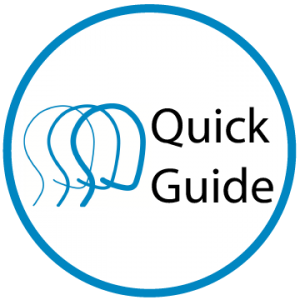Your Cart
Special Education Services

The Individuals with Disabilities Education Act (IDEA) is a federal law requiring public schools to provide special education services to children ages 3 to 21, who have a documented disability covered by IDEA, and who need specialized educational strategies and supports to succeed in school.
Traumatic Brain Injury is one of the qualifying disabilities. Children with a TBI may experience problems that affect their school performance; frequently, the effects of a brain injury are not obvious at first but become more noticeable later when thinking and social activities increase at school. Some examples of changes that may occur after a child has sustained a TBI are:
- Physical changes: headaches; slowed reactions; higher sensitivity to light or noise.
- Cognitive (thinking) changes: forgetfulness; difficulty learning new material; easily distracted.
- Behavioral changes: difficulty dealing with minor changes of routine; depression; irritability.
How Do I find out if my child is eligible for Special Education Services?
Ask the school to evaluate your child. Call or write the director of special education or the principal of your child’s school. Describe your concerns with your child’s educational performance and request an evaluation under IDEA to see if a disability is involved. The school does not have to evaluate your child just because you have asked. If they don’t, they must tell you why in writing. If they do, then once you give your permission, they must evaluate your child at no cost to you within 60 days.
After testing and looking at things like your child’s health and well-being, a special team from the school will determine if your child has a disability, the impact on your child’s education caused by the disability, and if they are in need of specially designed instruction.
- If specialized instruction isn’t required, a 504 plan can provide many accommodations and services. It focuses on how your child is learning.
- If specialized instruction is required, an educational program is designed to meet your child’s unique needs. This program will be laid out in a very specific, very long document called the individualized education program (IEP) that focuses on what your child is learning. It is a binding document between the school and the parents for the provision of services. IDEA makes parents equal members on the IEP team because your input is invaluable; you know your child so very well, and the school needs to know your insights and concerns.
If your child has an IEP or 504 plan, you are likely to hear the terms accommodations and modifications. These terms sound similar but serve very different purposes. Accommodations refer to how a student learns. Modifications refer to how much a student is expected to do or learn.
If you do not agree with the evaluation and/or results of the testing conducted by your school district, you have the right to contact the Director of Special Education and request an Independent Education Evaluation. The district is required to pay for this at no cost to you.
What kind of services and supports are available?
- Schools use many strategies to help students receiving special education services succeed in general education settings. These include:
- Related services are things like transportation and other developmental and/or corrective services required to help your child benefit from special education, and includes things like occupational and physical therapy, and psychological and rehabilitation counselling. School health services are also considered a related service and are used to enable a child with a disability to receive a “free, appropriate public education.” School nurse services are provided by a qualified school nurse and include things like managing feedings and administering medication.
- Supplementary aids and services are provided in regular education classes, other education-related settings, and in extracurricular and nonacademic settings, to enable children with disabilities to be educated with nondisabled peers to the maximum extent appropriate, and include help and support in areas such as speaking or moving and assistive technology.
How does the plan get evaluated and modified?
After the initial meeting, you will meet with your child’s IEP team every year to review your child’s progress and modify the plan as needed. You can also request a meeting at any time during the school year if you feel a change is needed or there is an issue the IEP team needs to resolve.

References:
More about Special Education Services
Resources:
Help Children Return to School after a TBI (CDC publication)
Intro to Special Ed (Virginia Dept of Education publication)
DisABILITY Law Center (Special Ed resources)
Special Education Rights (Virginia Dept of Education publication)
